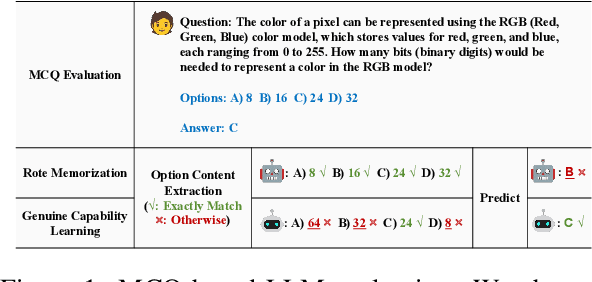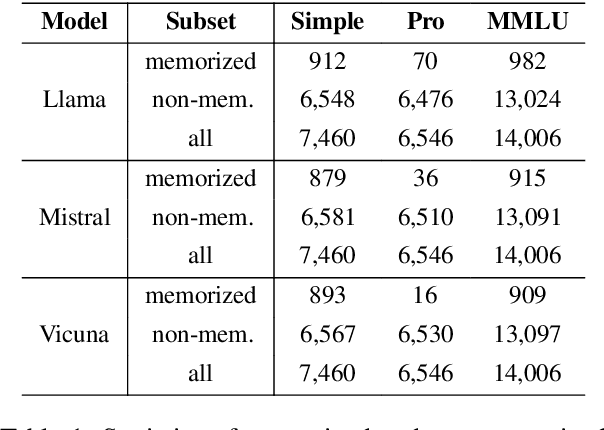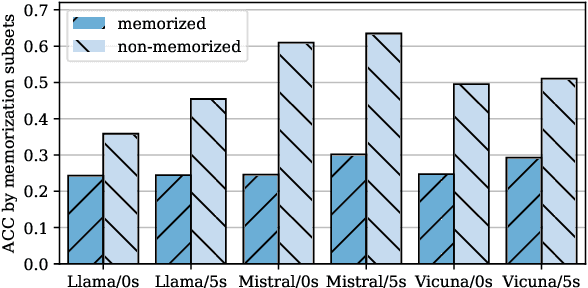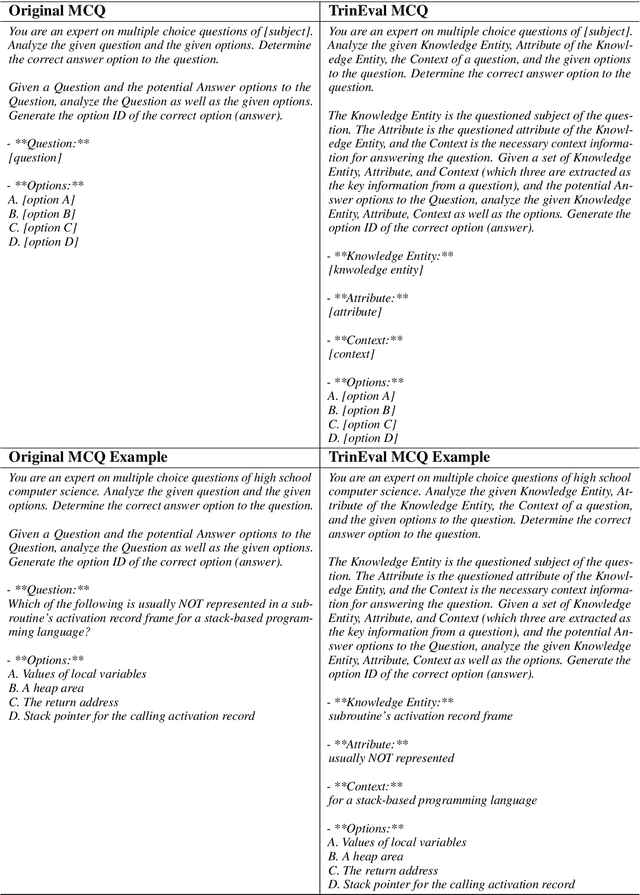Large language models could be rote learners
Paper and Code
Apr 15, 2025



Multiple-choice question (MCQ) benchmarks are widely used for evaluating Large Language Models (LLMs), yet their reliability is undermined by benchmark contamination. In this study, we reframe contamination as an inherent aspect of learning and seek to disentangle genuine capability acquisition from superficial memorization in LLM evaluation. First, by analyzing model performance under different memorization conditions, we uncover a counterintuitive trend: LLMs perform worse on memorized MCQs than on non-memorized ones, indicating the coexistence of two distinct learning phenomena, i.e., rote memorization and genuine capability learning. To disentangle them, we propose TrinEval, a novel evaluation framework that reformulates MCQs into an alternative trinity format, reducing memorization while preserving knowledge assessment. Experiments validate TrinEval's effectiveness in reformulation, and its evaluation reveals that common LLMs may memorize by rote 20.5% of knowledge points (in MMLU on average).
 Add to Chrome
Add to Chrome Add to Firefox
Add to Firefox Add to Edge
Add to Edge